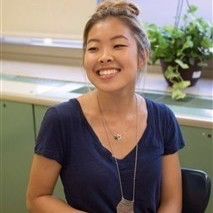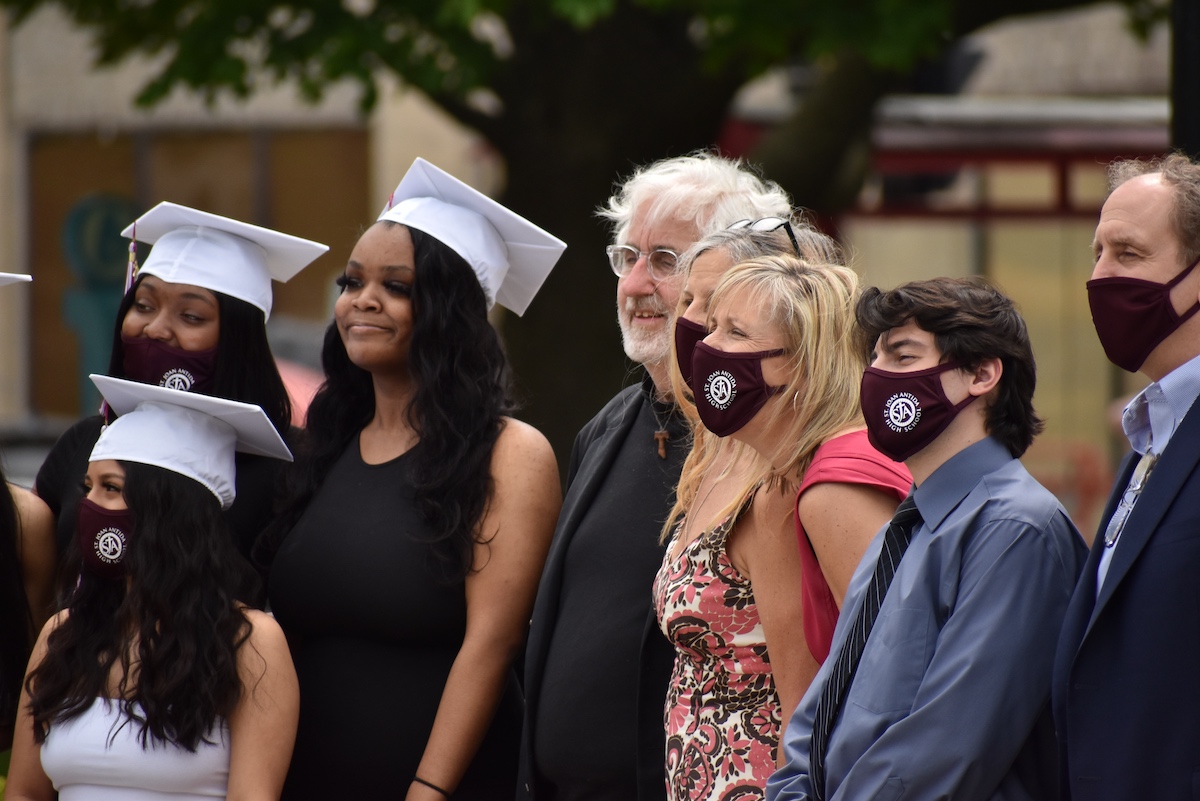Marikris Coryell found her calling in education after decades on a very different career path.
Coryell had led a successful career in the field of business for years. After growing up in Waukesha, Wisconsin, she majored in accounting and went into the family business, which made and sold large-scale manufacturing equipment. There, she worked her way up to COO. In 2015, the company was acquired, and Coryell served as a director for a year until she left in search for a career where she could be more in touch with the people with whom she worked.
Eventually, she landed a job as VP of operations with a small trailer production company where she could be on the shop floor with other employees. As she built connections with her employees, Coryell heard stories about how they didn’t have the opportunity to get a better education, or came from unsupportive families and challenging home lives. She came to understand that the opportunities that allowed her to be so successful were not accessible to everyone.
“Out of none of my own control, I was born into my family, and they gave me certain opportunities,” she told Technical.ly. “Someone else is born into a different family, and they don’t have these opportunities. I mean, how does that work?”
Coryell touched on a fact of life: Circumstances often dictate the paths people take. With this realization, she wanted to be able to do more by providing access to opportunities for people who weren’t given the same opportunities she had. In order to do so, she realized, she needed to leave the world of business — and could think of nothing more suitable for creating opportunity than education.
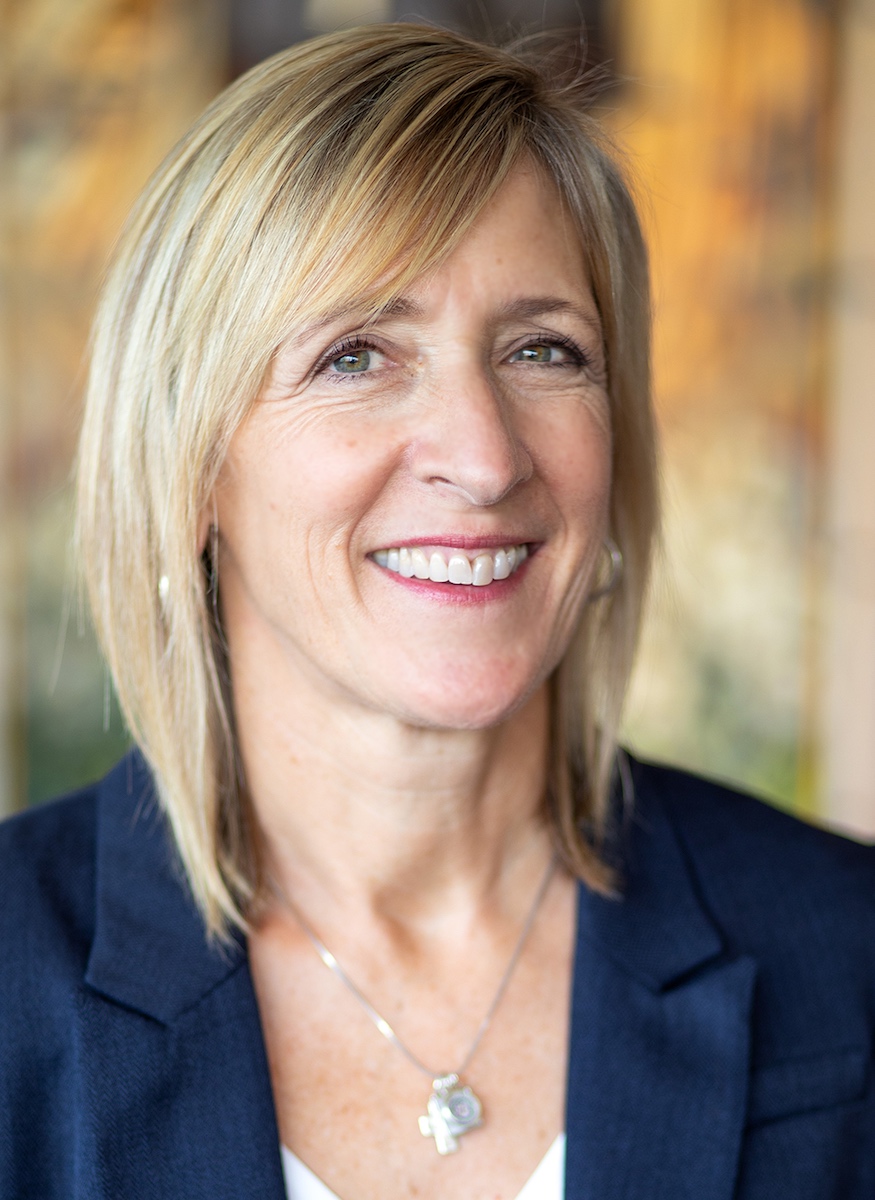
Marikris Coryell. (Courtesy photo)
With the nudge of a peer, the former president of another Catholic high school in Milwaukee, Marikris found her position as president at St. Joan Antida, a high school that serves young women and gives them access to a quality education without the steep tuition one might find at alternative schools around the city. The school’s purpose appealed to Coryell’s passions. While St. Joan Antida didn’t offer the same salary than past business roles, she was on the hunt for a career that was more fulfilling than it was lucrative.
“Being a nonprofit in the world of education means investing every single cent back into improving the educational experience provided to students. It’s a fact that everyone here is here to support the mission of the school vs. their pocketbooks,” she said. “I believe in going with my gut, and everything about SJA made sense.”
Reframing student success
Coryell loves her work, but it comes with its own unique challenges. Students enter their freshman year from schools from all over Milwaukee County at various academic levels; many arrive able to read at or above grade level, but some come in with elementary school levels.
Who are we transforming into a citizen who can give back to the community?
SJA also attracts students from all corners of the county. As a result, their students all over the map in terms of academic abilities, and SJA teachers are tasked with creating lessons that are adequately rigorous for each student. It is daunting, especially because SJA is perpetually battling the society-accepted standard of a successful student. At SJA, a student may test low on a standardized test, but they may have jumped three grade levels in their reading skills in the last two years.
The way the community measures SJA is an obstacle that the students, teachers and administration face daily. It is for this reason that Coryell’s priority is teaching to the whole student and measuring their success by their growth.
“Who are we transforming into a citizen who can give back to the community?” Coryell mused. “I wish there was some type of measurement for that.”
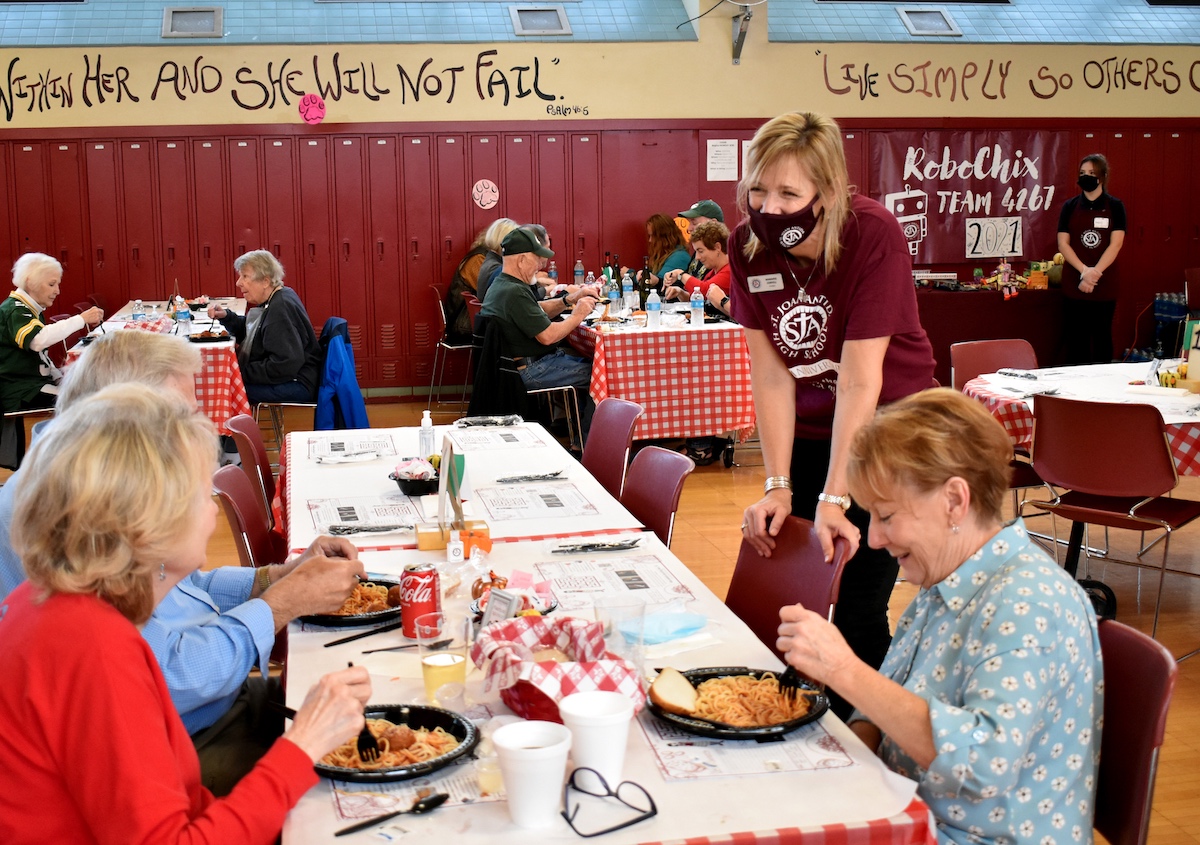
Marikris Coryell at St. Joan Antida’s Spaghetti Dinner. (Courtesy photo)
The first steps forward
In order to have the most profound impact, Coryell believes the legislators must take the first steps in tackling the issues in urban education. Where and how they allocate funding for education is key, specifically in how they evaluate which school gets what money.
The schools in Milwaukee that have waitlists have the ability to be selective in enrollment; therefore, they may admit only the highest achieving students. Because those schools are so successful in maintaining high test scores, they receive more state funding. (This isn’t a challenge unique to Milwaukee; take recent fights about high school lottery systems in San Francisco and Philadelphia as examples.) Coryell believes that the system fails to serve the demographics who need the extra resources. The students who are struggling will never receive the same type of benefits because the schools available to them have less funding provided.
It comes back to rethinking what a successful school offers. Coryell knows that St. Joan Antida can’t simply prepare its students for a four-year degree.
“That’s not for everybody, and that’s not going to do Milwaukee best,” she said. She focuses on offering multiple ways to success and equipping the students with the skills to continue on in their learning once they graduate.
Coryell left the world of business to work in a position where she can make genuine connections and see a direct impact. Now, she loves working to provide opportunities and open doors for her students through education.
“In turn, they use this gift to improve their futures,” she said, “It doesn’t get any better than that.”
Subscribe to This Week in Milwaukee Rising:
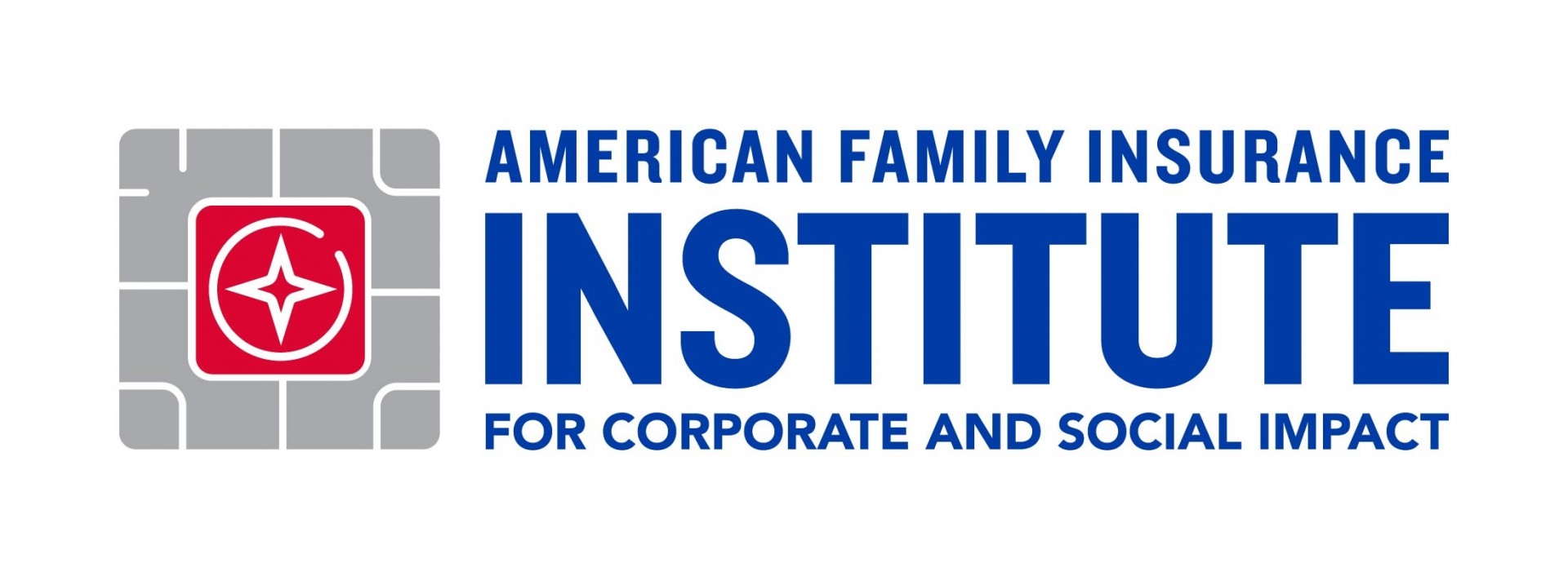
This article appears as part of This Week in Milwaukee Rising, a weekly newsletter from Technical.ly highlighting the innovators bringing a more just, equitable and dynamic Milwaukee economy. Subscribe here. The series is underwritten by American Family Insurance Institute for Corporate and Social Impact.
Before you go...
Please consider supporting Technical.ly to keep our independent journalism strong. Unlike most business-focused media outlets, we don’t have a paywall. Instead, we count on your personal and organizational support.
3 ways to support our work:- Contribute to the Journalism Fund. Charitable giving ensures our information remains free and accessible for residents to discover workforce programs and entrepreneurship pathways. This includes philanthropic grants and individual tax-deductible donations from readers like you.
- Use our Preferred Partners. Our directory of vetted providers offers high-quality recommendations for services our readers need, and each referral supports our journalism.
- Use our services. If you need entrepreneurs and tech leaders to buy your services, are seeking technologists to hire or want more professionals to know about your ecosystem, Technical.ly has the biggest and most engaged audience in the mid-Atlantic. We help companies tell their stories and answer big questions to meet and serve our community.
Join our growing Slack community
Join 5,000 tech professionals and entrepreneurs in our community Slack today!

The person charged in the UnitedHealthcare CEO shooting had a ton of tech connections

The looming TikTok ban doesn’t strike financial fear into the hearts of creators — it’s community they’re worried about

Where are the country’s most vibrant tech and startup communities?

